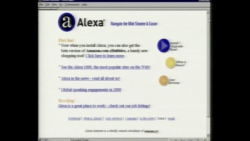Editor’s Note: Steven Greenhouse was a reporter for the New York Times for 31 years and covered labor and workplace matters there for 19 years. He is the author of Beaten Down, Worked Up: The Past, Present and Future of American Labor. The opinions expressed in this commentary are his own.

To the dismay of worker advocates in the United States and around the world, Amazon warehouse workers in Alabama failed to unionize earlier this month, losing by a vote of 1,798 to 738. Not only is the loss a heavy blow to the union movement, but it shines a much-needed spotlight on several major problems with America’s economic and labor landscape.
Even as calls for an increased minimum wage and improved benefits have grown louder in recent years, many workers still receive paltry pay, struggle to make ends meet and are treated like disposable cogs. If we ever hope to create an economy that assures that every worker has the respect they deserve and a fair share of our nation’s prosperity, we need to make unionization elections fairer, give workers a bigger voice at work and fix our dangerous levels of inequality.
Make union elections fairer
Corporations typically have a huge leg up on workers when it comes to unionization votes in the United States. They have the power to flood their workers with anti-union information, while unions have far less access to workers — for example, organizers can be prohibited from going onto company property. That’s a result of a 1992 Supreme Court decision, which gave companies the right to ban non-employee union organizers from their property.
During the union campaign in Alabama, Amazon management launched an anti-union website, had one-on-one talks with workers and required everyone to attend group meetings where the company pressed its anti-union views. Stuart Appelbaum, president of the Retail, Wholesale and Department Store Union, told me that Amazon let workers think that the warehouse might close if they unionized. And a worker and a union organizer told me that Amazon warned workers that their wages and benefits might be cut if they unionized. Amazon has said it was giving its workers needed information about unions.
Further skewing the playing field, Amazon sent workers anti-union text messages and even put posters in the bathroom stalls. For its part, Amazon has said it “provided education that helps employees understand the facts of joining a union.” The company issued a lengthy statement after the results of the tally stating that claims it won because it intimidated workers are untrue: “Our employees heard far more anti-Amazon messages from the union, policymakers, and media outlets than they heard from us. And Amazon didn’t win—our employees made the choice to vote against joining a union.”
Last Friday, the Retail, Wholesale and Department Store Union asked the National Labor Relations Board to set aside the election, asserting that Amazon had made improper threats and illegally intimidated workers. Amazon responded that rather than accepting the vote results, “the union seems determined to continue misrepresenting the facts.”
Many labor experts, however, have said the union vote in Alabama wasn’t a free and fair election because Amazon had so many advantages. Enacting the Protecting the Right to Organize Act, the most pro-union piece of legislation since the 1930s, would be an important step in turning union elections into a fairer, less lopsided fight. It would make it easier for workers to form unions and bargain for better wages, and would allow for fines when employers break the law in battling against unionization efforts. President Joe Biden has endorsed that legislation and the House passed it in March. Union leaders say it’s crucial that the Senate pass the legislation.
Give workers a bigger voice
American workers often have a pathetically puny voice at work. They often don’t have enough power or say when it comes to pay, benefits and working conditions, like safety problems, a stressful pace of work, bosses who bully them or managers doing too little to protect them from Covid-19.
Two Amazon workers I interviewed for a story published in The Guardian complained about the grueling pace of work and said they received just two breaks during their 10-hour workdays, often waiting four hours for their first one. One of the workers said they had to work like robots, while the other said they had to stand for several hours a day. Amazon officials told me that the company has “performance expectations” for every worker and that it offers “some of the best jobs available everywhere we hire.”
It seems that Amazon does what many heavy-handed American corporations do: push its workers to the extent it can get away with. That’s why workers would be helped greatly if Congress passes the PRO Act — it would give workers a bigger voice by making it easier for them to unionize.
Fix income inequality
America’s immense wealth and income inequality have left many workers behind, and not just at Amazon. America has the highest percentage of low-wage workers among several major industrial nations, according to the Organization for Economic Cooperation and Development. Around 32 million workers earn less than $15 an hour, and only 39% of Americans say they have the money to pay for an unexpected $1,000 expense, like an emergency auto repair. Amazon does pay a starting hourly wage of at least $15, and full-time employees receive health benefits.
More Perspectives on Management & Leadership
Giant corporations, meanwhile, continue to rake in huge profits. Buoyed by the pandemic, Amazon’s sales jumped by 38% to $386 billion in 2020 and its profits nearly doubled to $21.3 billion. And Jeff Bezos, the world’s richest individual, is worth $196 billion. Despite Amazon’s booming profits, the company, like many other retailers, provided very limited hazard pay to its workers during the pandemic — boosting their pay by just $2 an hour — and only for a few months.
The best way to treat workers with dignity and respect is to give them more of a voice and more power at work. Making it easier for them to unionize, as the PRO Act aims to do, is a surefire way to achieve that goal.
Many corporations have become so focused on maximizing profits and managerial flexibility that they often reflexively oppose giving workers more of a voice, fearing that will somehow harm efficiency and profitability. But what these companies fail to realize is that giving workers more power and more of a voice increases employee loyalty and productivity and reduces worker turnover. For the good of their workers — and to help reduce the income inequality that is plaguing our nation — Corporate America should stop being so vehemently opposed to unions.





















